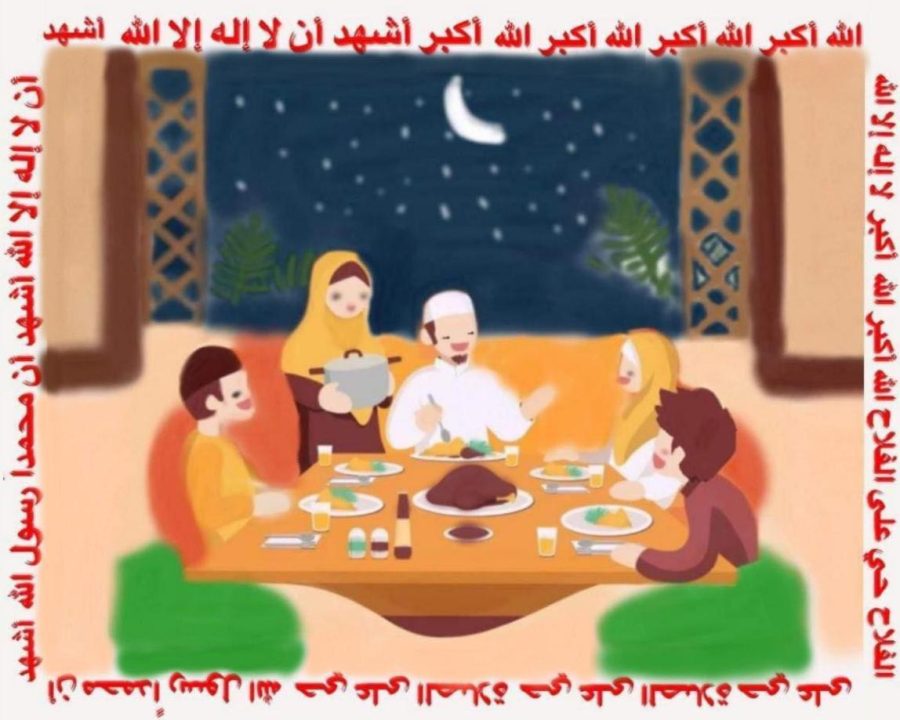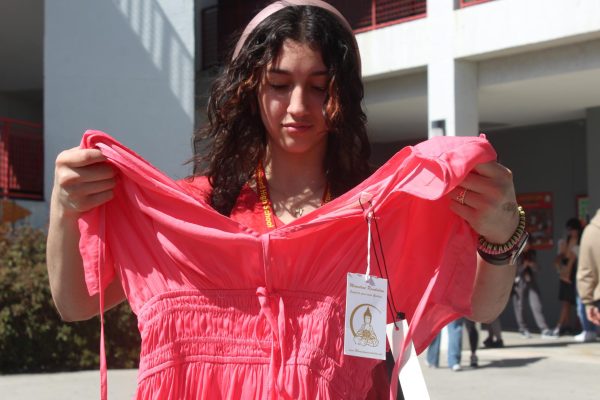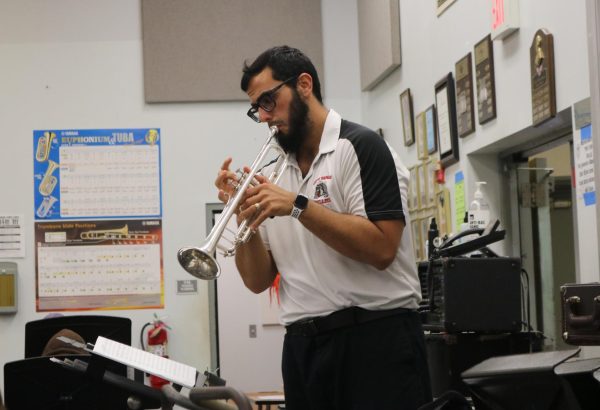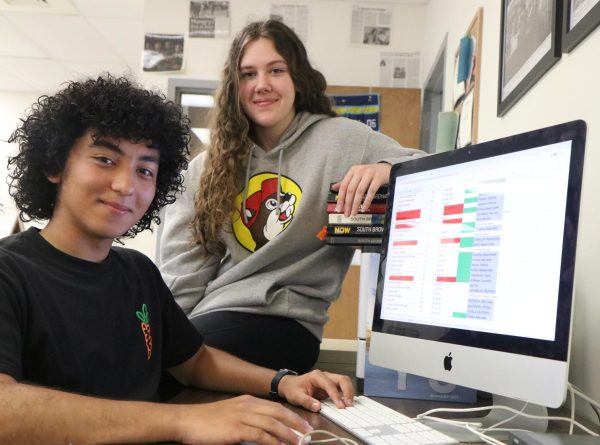When Hunger is Holy
Ramadan is a holy month observed by Muslims worldwide as a month of fasting, prayer, and reflection.
Around the illustration is the call to prayer. In English it means God is Great bear witness that there is no god except the One God. I bear witness that Muhammad is the messenger of God. Hurry to the prayer. Hurry to salvation. There is no god except the One God. Click the audio below to hear the call to prayer.
May 25, 2022
Ramadan is the ninth month of the Islamic lunar calendar. Unlike Christmas, for example, which falls on the same date every year, Ramadan begins on a different date each year. The first day of Ramadan begins when the first sliver of the crescent moon appears in the ninth month of the Islamic Calendar. This year, Ramadan began on a Saturday, April 2, and will end on a Sunday, May 1.
Fasting during the month of Ramadan is prescribed in the Qur’an and is one of the five pillars of Islam. Fasting involves abstaining from all food and drink from dawn to sunset. As such, Muslims all around the world fast for different lengths of time, depending on their geographic locations. Muslims customarily eat a light meal before dawn, known as “Suhoor,” and the meal at sunset is known as “Iftar.” After the Maghrib (call of prayer) Muslims can eat or drink anything which is always at sunset.
Fasting is required of all Muslims who have reached the age of puberty, and who are physically and mentally able to do so. Those with medical conditions whose health may be at risk because of fasting are not required to do so, nor are pregnant or breastfeeding mothers or those who are traveling long distances. Muslim children are not expected to fast until they reach the age of maturity (puberty), but many families encourage their children to observe shorter fasts as a form of training. And often Muslim children choose to fast, and parents respect their choice and support them.
Ramadan is special for many reasons, one of them is that the Qur’an was revealed for the first time to Prophet Muhammad (Peace Be Upon Him) in this holy month. The Qur’an is a divine book of guidance on how to live life as a Muslim. Ramadan raises the place of our family or relatives in our hearts by gathering at the iftar table. It teaches us how to be patient.
Fasting does not simply consist of abstaining from food and drink; it enables the attainment of spiritual purity and growth. This occurs through the development of a greater sense of mindfulness regarding our actions as well as monitoring our behavior and speech. Fasting also enhances our compassion for the world around us. In addition, fasting has also been shown to have many health benefits which include a lower risk of coronary heart disease, blood pressure, triglycerides, and cholesterol levels. Ultimately, fasting during the month of Ramadan is special and memorable for many Muslims around the globe.
Ramadan ends this year on May 1st. The following day is called Eid Al Fitter, which means Festival of Breaking the Fast, and all Muslims people return to a regular eating schedule.











